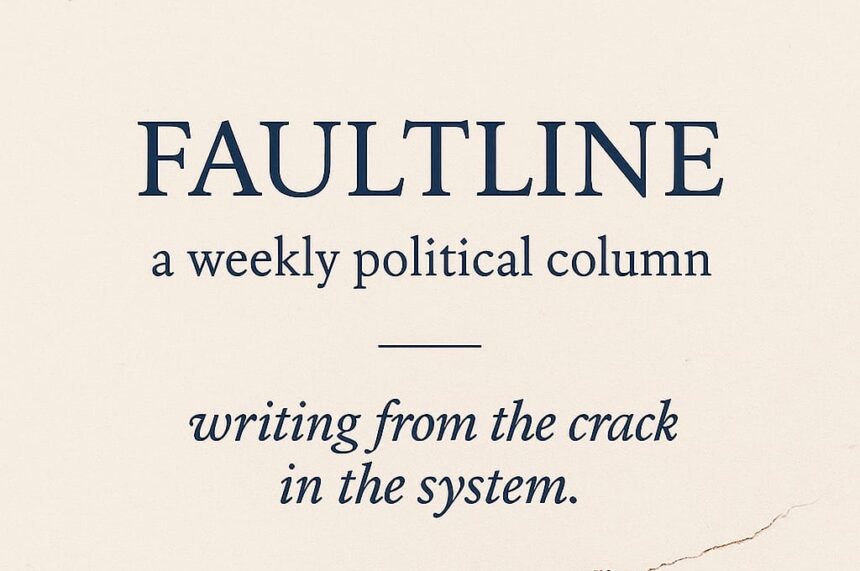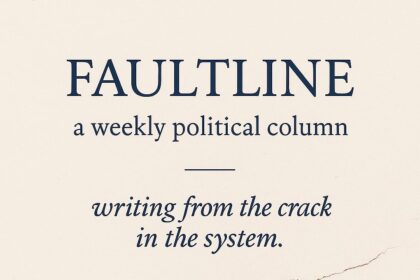War is not missiles dropped in the quiet of the night, smeared with fascist slogans and preempted titles. It is not the cross-border fire at Sargodha or multiple media briefings by non-state actors in hopes of curbing non-kinetic combat and misdirected social engineering. It is the outline of Waziristan on the map – the non-glorifying ones that do not own Kashmir like a hereditary pursuit – shaded in the colour of its strategic ambiguity.
To much of the country, Waziristan exists only on the margins: in military briefings, defence budgets, and the half-whispered sentences foaming around “stability” that never makes it out of shadowed doors. This cartographic silence, however, should not be mistaken for accidental naivety – it is part of the policy that perpetuates the sectarianism keeping our provincial borders alive.
In Pakistan, the lines between national security and internal subjugation have become dangerously indistinct. Since the inception of the War on Terror post-9/11, where the country played the most comedic dual role – both as an actor and an ally – by serving Western defence interests while also proclaiming an internal war against its own ethnic peripheries, it has paved the way for brazen authoritarianism that barely gets fact-checked. Perhaps because it continues to serve Punjabi interests without demonising them.
Operations like Zarb e Azab and Radd ul Fasaad have been the most complacent catalysts in promoting not only regional insecurity but have also served as instruments of internal militarisation to eradicate cultural identities, conduct ethnic erasure, and displace populations amidst an environment of continued fear and suspicion in the name of patriotism, particularly for Baloch and Pashtun communities. Even the euphemistic language adopted to refer to these communities is deliberately misconstrued to create negative connotations that disconnect any moral or collective responsibility towards their rights. Terms like ‘elimination of threats’, ‘homeland security’, and ‘strategic stabilisation’ are part of a larger state propaganda aimed at obscuring the mass displacement and trauma that is carried across generations as a consequence of these glorified military operations.
The Pakistani state, without a doubt, still seethes under the nostalgia of its pre-partition fantasies, suffering from a unique form of internal colonialism that manifests within its own borders. By isolating territories outside of Punjab, particularly along the tribal belt in North and South Waziristan, and subjecting their ethnic residents to surveillance and violent repression in the name of national integrity, the state has created a vacuum that births separatist movements day and night – ultimately reinforcing the cycle of unwanted hegemony and regional inaccessibility it claims to confront. These regions, already deficient in infrastructure, human development, and political representation, now identify as theatres of state violence in the name of counterterrorism.
The use of drone strikes, both foreign and domestic, in Pakistani territory, especially in the Federally Administered Tribal Areas (FATA), clearly exposes the asymmetrical value attached to lives across ethnic and geographic lines. While international discourse rightfully condemns the United States’ use of Pakistani lives as human shields and their nefarious absolvement of proxy war crimes in the name of curbing USSR communist propaganda, barely any attention is given to Pakistan’s own history of air strikes and ground operations in civilian zones, sanitised with seasonal milli nagmas. The state’s refusal to acknowledge civilian losses, marred by terms like ‘neutralised terrorists’, illustrates a structural bias surrounding the human cost of its much-revered security doctrine. When the country adopts the delusional stance of “not harming civilians”, it single-handedly diverts focus from the multiple human rights investigations, including those by independent institutions and local NGOs, of documented, discriminatory bombings, extrajudicial killings, and mass displacement of approximately a million following Zarb-e-Azb in 2014 alone.
It is also imperative to recognise that the Pakistani Taliban, the very group these operations purported to dismantle, did not materialise in a vacuum. Pakistan’s complicity in Western war strategies, selective tolerance towards non-state actors, and geopolitical expediency (through negotiating with certain factions and bombing their host communities) have provided not only the groundwork for militant insurgencies but also created a pattern of strategic ambiguity that is reinforced through the state’s very active myth-making machinery. So when Pakistan holds dialogue with the Taliban for regional stability but mass deports Afghan refugees who have sought asylum in its territories and are now alien to the Islamist regime operating in Afghanistan, it only exposes itself for the fool it is. A hypocritical fool, to be precise.
What exacerbates this crisis is the disproportionate centrality of Punjab in Pakistan’s civil-military bureaucracy, which has allowed this security architecture to persist. As Punjab remains the centre of political and military decision-making, this regional consolidation of power has manufactured a national discourse that is ethnically and geographically exclusive, where national curricula and commemorations conveniently exclude the memory of state violence against Pashtun, Baloch, or Sindhi populations, unless conveyed through the lens of pacification. This doctrine gives rise to a highly sanitised nationalism that not only omits but actively erases those it kills.
There is so much grief surrounding this violence, not only for those who suffer firsthand from it but also for the ones who wish to shape a crack in its aftermath. What Pakistan needs is an immediate and comprehensive demilitarisation of its internal policies, particularly towards marginalised regions. This not only includes the historical recognition of state injustices but also reconciliation and a reimagining of what national security accounts for. Communities in Quetta or Waziristan do not define security by military presence but by the absence of fear.
Pakistan cannot build itself upon the unmarked graves of peripheral victims, nor can it move forward by normalising ties with the very regimes that rendered it a battleground. We must give up the vilification of dissenters, shifting their strategic dehumanisation to progressive dialogue. This is an indictment of a state that must be urgently rethought.
Peace cannot come from repression, only reckoning.





